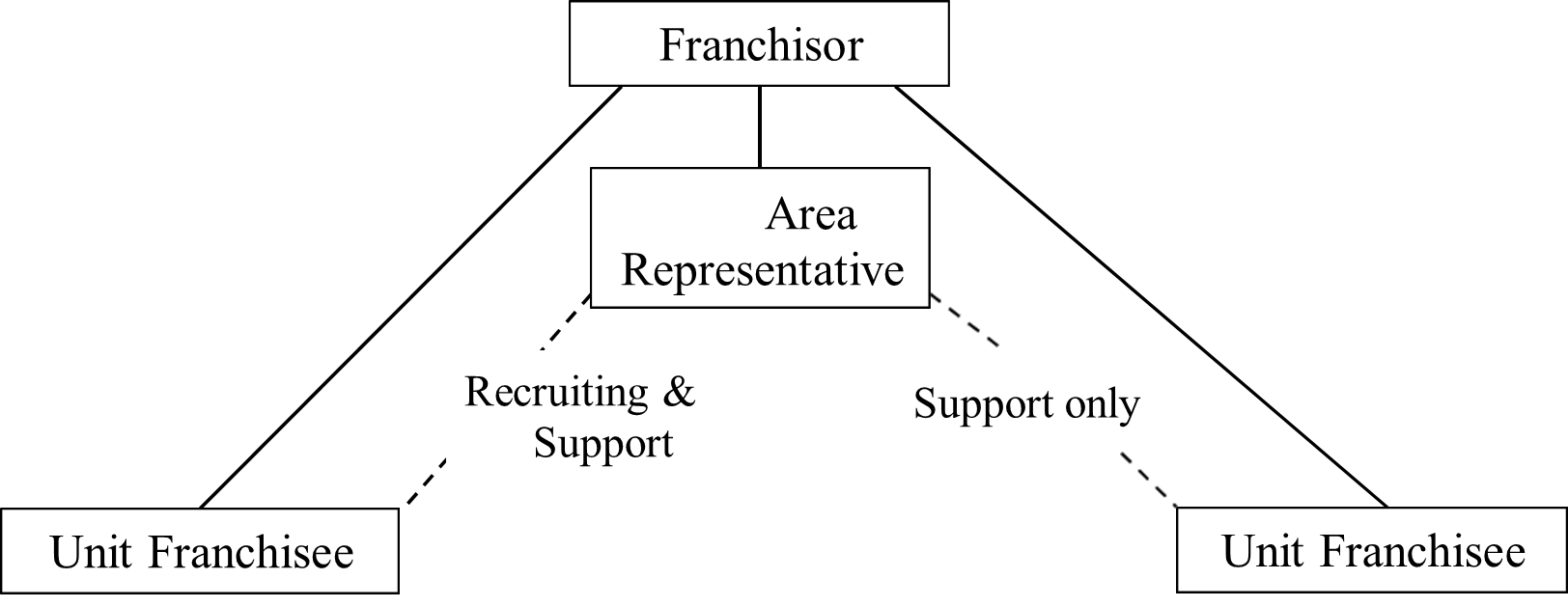Multi-Unit Franchise Strategies
As the terms used to explain the various strategies are often used interchangeably, it is necessary to read the agreement to determine the actual the type of arrangement.
The North American Securities Administrators Association, Inc. (“NASAA”) has issued a Multi-Unit Commentary to provide practical guidance for disclosing certain multi-unit franchising arrangements that have become common in franchising. NASAA’s definitions are used in the following descriptions.
Area Development
An Area Development arrangement involves a person that is granted, for consideration paid to the Franchisor, the right to open and operate multiple Unit Franchises, generally within a delineated geographic area. An “Area Developer” is the person granted that right. The Area Developer generally is a party to an “Area Development Agreement” with the Franchisor specifying the number of units to be developed according to a development schedule. The Area Developer or its affiliates generally are parties to separate Unit Franchise Agreements with the Franchisor. The Area Developer does not have the right to grant or sell Unit Franchises to third parties.
Under this structure, the Area Developer may have any number of other names, including Area Franchisee, Multi-Unit Developer or Regional Developer.
Subfranchise Rights
The second structure is referred to as a Subfranchise arrangement and involves a person that is granted, for consideration paid to the Franchisor (the “Subfranchisor”), the right to grant Unit Franchises to third parties, generally within a delineated geographic area (“Subfranchise Rights”). The Subfranchisor is a party to a Subfranchisor Agreement (aka a Master Franchise Agreement), with the Franchisor specifying the territory in which the Subfranchisor may operate together with a minimum opening schedule. The Subfranchisor is a party to Unit Franchise Agreements (aka Subfranchisee Agreements), with third parties for Unit Franchises. The Subfranchisor is typically obligated to provide support services to those third parties. The third parties signing the Subfranchisor’s Unit Franchise Agreements are called “Subfranchisees”.
The Franchisor and the Subfranchisor usually each receive a portion of the initial franchise fee and the continuing fees paid by each Subfranchisee. The Subfranchisor may be a party to one or more Unit Franchise Agreements with the Franchisor for Unit Franchises. Outside the Franchisor’s relationship with the Subfranchisor, the Franchisor also may be a party to Unit Franchise Agreements with third parties for Unit Franchises, and those third parties are called “Unit Franchisees”.
Under this structure, the Subfranchisor can be referred to by any number of other names, including Area Franchisor, Regional Franchisor, or Master Franchisee.
Area Representation
An Area Representation arrangement involves a person that is granted, for consideration paid to the Franchisor, the right to solicit or recruit third parties to enter into Unit Franchise Agreements with the Franchisor, and/or to provide support services to third parties entering into Unit Franchise Agreements with the Franchisor. The person granted these rights is a party to an “Area Representative Agreement” but is not a party to the Unit Franchise Agreements signed by the third parties. In this Commentary, an “Area Representative” is the person granted these rights, and the third parties signing the Unit Franchise Agreements with the Franchisor are called “Unit Franchisees”. The Area Representative, like a Subfranchisor, usually receives portions of the initial franchise fees and the continuing fees paid by Unit Franchisees, depending on the services the Area Representative provides. The Area Representative’s payment of consideration to the Franchisor for the right to recruit and/or provide support to Unit Franchisees is the element that makes the area representative different from a franchise broker or selling agent.
Under this structure, the Area Representative can have any number of other names, including Development Agent, Area Developer or Regional Developer. Under some franchise laws, the Area Representative may be considered to be a Subfranchisor if it provides support services to third parties with Unit Franchise Agreements, even though the Area Representative does not sign Unit Franchise Agreements with third parties. In general, an Area Representative is also a Franchisee.
Franchise Brokers
A franchise broker is an independent sales agent not employed by the franchisor that solicits prospective franchisees to purchase a franchise and receives a fee or commission from the franchisor or subfranchisor on the sale of the franchise.
Unlike a Subfranchisor or Area Representative, however, a franchise broker does not typically pay consideration to the franchisor for the right to recruit franchises and generally does not have the obligation to provide support services to franchisees.



